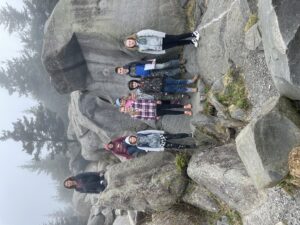4-H Wildlife Habitat Education Program
go.ncsu.edu/readext?967835
en Español / em Português
El inglés es el idioma de control de esta página. En la medida en que haya algún conflicto entre la traducción al inglés y la traducción, el inglés prevalece.
Al hacer clic en el enlace de traducción se activa un servicio de traducción gratuito para convertir la página al español. Al igual que con cualquier traducción por Internet, la conversión no es sensible al contexto y puede que no traduzca el texto en su significado original. NC State Extension no garantiza la exactitud del texto traducido. Por favor, tenga en cuenta que algunas aplicaciones y/o servicios pueden no funcionar como se espera cuando se traducen.
Português
Inglês é o idioma de controle desta página. Na medida que haja algum conflito entre o texto original em Inglês e a tradução, o Inglês prevalece.
Ao clicar no link de tradução, um serviço gratuito de tradução será ativado para converter a página para o Português. Como em qualquer tradução pela internet, a conversão não é sensivel ao contexto e pode não ocorrer a tradução para o significado orginal. O serviço de Extensão da Carolina do Norte (NC State Extension) não garante a exatidão do texto traduzido. Por favor, observe que algumas funções ou serviços podem não funcionar como esperado após a tradução.
English
English is the controlling language of this page. To the extent there is any conflict between the English text and the translation, English controls.
Clicking on the translation link activates a free translation service to convert the page to Spanish. As with any Internet translation, the conversion is not context-sensitive and may not translate the text to its original meaning. NC State Extension does not guarantee the accuracy of the translated text. Please note that some applications and/or services may not function as expected when translated.
Collapse ▲Environmental education is critical for a sustainable future. Environmental and human health are inseparable. Children need opportunities to spend time in nature and develop a connection and interest in outdoor spaces, then build upon that interest with learning how ecological systems work and why natural resources matter. Research shows that time spent outdoors can benefit children’s health and academic performance through increased physical activity and improved attention spans.
In the winter of 2023, Madison County 4-H formed a group to participate in the 4-H Wildlife Habitat Education Program (WHEP). The 4-H WHEP group held ten educational programs from January to May, including hands-on field trips, to learn about wildlife in North Carolina, ecosystems and habitat needs, and habitat conservation and management strategies. Youth had the option to compete at the State 4-H WHEP Contest.
Nine youth participated in Madison County 4-H WHEP, learning about wildlife and conservation.
The 4-H WHEP program gave youth of diverse learning abilities the opportunity to gain knowledge and confidence through experiential learning in classroom and outdoor settings. Youth were challenged with critical thinking and knowledge application during WHEP group meetings and the State 4-H Contest, and each one demonstrated knowledge gain over the four month period. Participants were very eager to spend time outside as often as possible! One participant stated, “The most important thing I have learned in 4-H is more about the area I live in. I have learned about the plants and animals that live around me and how to make sure that they thrive. I know how to manage wildlife and habitats, and can identify many more birds, fish, mammals, amphibians, and reptiles than I used to be able to.”




